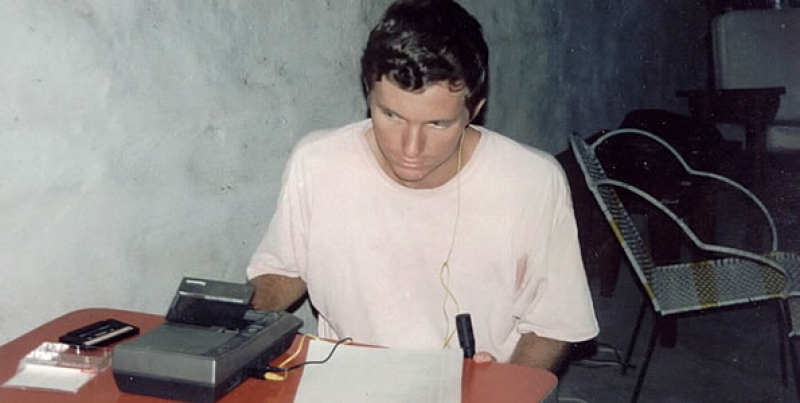Propriety of Speech

My dictionary defines grammar as: “A system of principles and rules for speaking or writing a language; propriety of speech.”
Propriety of speech? If pressed to give my own definition, it would tend to include a certain degree of impropriety of speech.
OK, maybe that’s an overstatement. Grammar is like an incorrigible child: better to be understood than disparaged, no matter how tempting the latter might be. I maintain, however, that unlike the incorrigible child, grammar should be heard, not seen. But enough about my childhood.
I mention this not because of my burning hatred of all things grammatical, but because a good chunk of our language study time in the village was taken up with the pursuit of dissecting the Wilo grammar down to its most minute details. Word order, suffixes, prefixes, infixes, postfixes, a-fixes, and quick fixes all were broken down into their smallest meaningful components which were then analyzed as to how they seemed to clarify or qualify or quantify the overall idea being communicated.
Grammar lovers (a strange breed of people unto themselves) have at times described such endeavor in glowing terms such as “a natural high” and “dreamy,” which, although short on originality and sounding a bit like Woodstock, does go a long way in explaining that floating sensation and extreme drowsiness I would often experience near the end of our grammar sessions.
Our missionary team would get together and brainstorm grammar issues from time to time. Our discussions would go something like this:
Phyllis: “… So that’s why it seems to me the suffix eba – well, actually just the letter b in the suffix – is used to indicate a transient aspect of the predication. The letter a maybe marks predication specifically. The letter e? I’m not too sure. What do you think, Tim?”
Tim: “I’d say the letter e indicates the initiation or commencement of that transient action. It’s there to let you know a change has taken place, whether it be a new action or a new state of being. I don’t know… How does that sound to you, Davey?”
Davey: “Huh?”
Tim: “What do you think about the focus being on the initiation aspect of the verb?”
Davey: “Ummm, well, yeah. I think it’s a definite possibility.”
Phyllis, chuckling: “A definite possibility? Isn’t that an oxymoron?”
I was hurt, and retorted: “Of course it’s an oxy, you doofus! Now, can we please stop calling each other names and just focus on the task at hand?”
OK, maybe that’s an overstatement. We did actually make progress during these sessions, which is a good thing, because the Wilos themselves were at a loss to explain their grammar to us in any detail. Their answer to our dilemma was, “Hey, don’t ask us. When you learn to speak well, you can explain to us why we say it like that.”
Our only recourse was to pull out fistfuls of hair in frustration (although we were careful to limit this to our own hair) and then continue accumulating tons of language data, looking for patterns that would unlock to us the secrets of the structure of the Wilo language.
And you know, I started to really enjoy that grammar stuff. Who knew I could plumb such depths of joy spending hours on end charting the wonderfully capricious meanderings of the Wilo grammar? Our brainstorming sessions seemed to never be long enough, and believe it or not, I actually began to enjoy leisurely leafing through grammar reference books in my spare time. The unthinkable was beginning to happen: I was falling in love with grammar.
Yeah, you’re right; that’s an overstatement, too.
If you enjoyed this excerpt, you'll love the book Our Witchdoctors Are Too Weak. Get your copy today.
